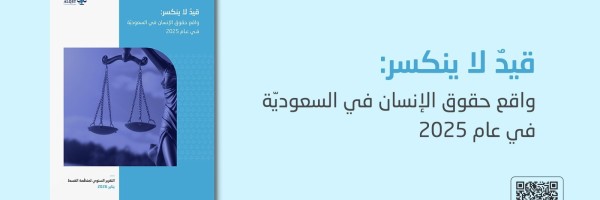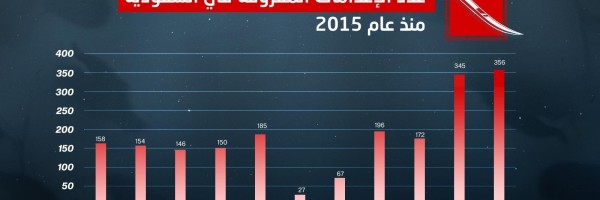On 25 November 2020, after months of delays and prolonged detention without their trials proceeding, women’s rights activists Loujain al-Hathloul, Nassima al-Sadah, Samar Badawi and Nouf Abdulaziz were brought before the Criminal Court in Riyadh in separate trial sessions, as the Saudi authorities ramped up their repression following the close of the G20 summit.
Loujain al-Hathloul’s case was transferred to the Specialised Criminal Court (SCC) after the Criminal Court concluded that it was “outside its jurisdiction”. When the case began in March 2019, after nearly a year of arbitrary detention, the authorities had intended to try Loujain and the other women activists in the SCC, an exceptional court set up in 2008 to try cases of terrorism, but which has frequently been used to prosecute human rights activists. However, they pulled back at the last minute under international pressure and moved the trial to the Criminal Court in Riyadh. Now that Loujain’s case has been returned to the SCC, the court has said it will open an investigation into allegations that she was tortured in detention.
Loujain began a hunger strike on 26 October in protest against her prison conditions and being denied contact with the outside world, including her family. After two weeks, she started being harassed by the prison authorities waking her up every two hours, night and day, until she had to end her hunger strike through mental exhaustion. In court, her body reportedly shook uncontrollably.
“These escalating measures show the brazen disregard the Saudi authorities have for basic human rights,” said ALQST’s Acting Director Safa Al Ahmad. “With the G20 summit over, they seemingly think that their repression can go unnoticed. The international community must instead increase its calls on the Saudi authorities to release the women immediately and unconditionally.”
ALQST calls on the Saudi authorities to drop all charges against the women human rights defenders and immediately and unconditionally release those who are still imprisoned, along with all others detained for the peaceful expression of their opinions or for acting to promote human rights. We also urge Saudi Arabia to allow a prompt, impartial and effective investigation into allegations of torture and demand that the perpetrators be held to account.
Background
On 15 May 2018, the Saudi authorities launched a wave of arrests against women human rights defenders (WHRDs) as well as several men who advocated for women’s rights. Further arrests followed between May and July 2018, just weeks before and after the lifting of the ban on women driving in Saudi Arabia on 24 June 2018.
In the months following their arrests, ALQST was informed that many of the WHRDs faced sexual harassment, torture and other forms of ill-treatment during interrogation, including being stripped naked, groped in sensitive places, beaten and subjected to electric shocks.
The trial of the WHRDs began in Riyadh in March 2019. The Saudi authorities initially claimed that the women had communicated with foreign intelligence agencies, and started a smear campaign in state media portraying them as traitors. In the end, however, their charge sheets made no mention of contact with intelligence agencies. Instead, nearly all the charges that the public prosecution brought against them were related to their promotion of women’s rights and calling for an end to Saudi Arabia’s discriminatory male guardianship system, as well as sharing information with journalists, diplomats and international human rights organisations.
Due to mounting international pressure in 2019, including a resolution by the European Parliament and two joint statements by groups of UN member states, Hatoon al-Fassi, Amal al-Harbi, Maysaa al-Manea, Ruqiya al-Muhareb, Abeer Namankani, Shadan al-Onezi, Aziza al-Yousef and Eman al-Nafjan were granted temporary release, but they are not allowed to continue their studies or go back to work, as their trial remains ongoing. Loujain al-Hathloul, Samar Badawi, Nassima al-Sadah, Nouf Abdelaziz and Mayaa al-Zahrani are still in detention.




